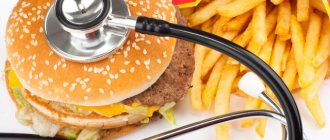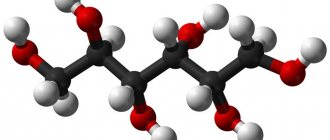A person’s performance directly depends on the amount of energy the body receives from food.
And it’s not for nothing that nutritionists recommend that everyone adhere to a healthy and balanced diet.
Indeed according to research , certain foods can be consumed not only to prevent a whole range of cognitive diseases, but also to increase mental performance and physical endurance of the body in healthy people.
What foods should you definitely include in your daily diet so as not to lack energy and have a good mood?
How does food affect performance?
Properly balanced nutrition allows you to extract maximum energy from food. At the same time, it is important to provide the body with a sufficient amount of vitamins, minerals, and other nutrients , despite the fact that energy is taken mainly from carbohydrates and fats.
Only with a normal balance of beneficial microelements will the digestive system be able to fully absorb the same proteins, glucose, and fat. Otherwise, it will lead to excess weight. Thus, the body postpones “for later” what it cannot absorb now.
Why do some foods negatively affect performance? Because too much energy is spent on digesting them . These are complex proteins, animal fats, and some complex carbohydrates. The body undoubtedly needs them, but not in the quantities in which modern man consumes them. The same fast food, for example, is very nutritious and satisfying, but at the same time it contains an excessive amount of complex animal fats, but there are no vitamins or fiber at all.
It is also necessary to take into account that performance depends not only on physical, but also psychological health. “Mental productivity” also directly depends on diet.
How to get rid of feeling tired after eating
What foods cause fatigue?
You should avoid consuming too many carbohydrates (especially refined carbohydrates) and sugar at the same time without enough protein, dietary fiber and fat. Fatty, “heavy” foods, for example, fried foods, fast food, processed meats, also take a lot of energy, which is spent on digesting food.
For some people, food sensitivities may cause them to feel sleepy after eating. Possible allergens include gluten, wheat, dairy, nuts and shellfish.
Of course, alcohol also affects your mood and concentration; avoid consuming alcoholic beverages if you want to stay energetic for the rest of the day.
What's the best way to eat?
Meal times depend on individual preferences, as we are all different. Some people eat 2-3 times a day, others have snacks every 3-4 hours.
Experiment with your schedule and choose the option that is most convenient for you. Perhaps 2-3 full meals and 1-2 snacks will suit you. Small portions will facilitate the digestion process, and therefore save your energy.
How to combine products?
First of all, you need to find a balance between foods rich in fiber, healthy fats, protein and vegetables. Limit your intake of refined fats such as pasta, grains, and sweets.
We recommend adding vegetables and some fats (olive oil, avocado slices) to a protein product (chicken, fish). However, it is worth remembering that too much protein can cause a feeling of sluggishness due to an increase in the amount of tryptophan, an amino acid present in protein foods (turkey, milk, meat, eggs). This amino acid promotes the production of serotonin.
Top 6 best products
In order to combat chronic fatigue and fatigue, nutritionists recommend that their patients include in their diet: fatty fish, honey, eggs, oatmeal, and legumes. These and many other brain-healthy foods are affordable for absolutely everyone, but for some reason many people refuse them, preferring dishes high in animal fats. We will look at the 6 best food products below.
Fatty fish
It contains easily digestible protein and fat, minerals, vitamin B12 and, most importantly, omega-3 acids.
At the same time, carbohydrates in fish are at least literally 7 grams per 100 grams of meat.
However, its daily use has a positive effect on mental performance - this is precisely facilitated by the omega-3 acids necessary for the brain, which stimulate intercellular metabolic processes in the brain.
Honey
It contains a large amount of sugars, but they are predominantly complex carbohydrates. But there is no fat there at all.
In addition to carbohydrates, there is also a whole range of minerals, zinc, iron, and essential oils.
Consuming honey also has a positive effect on the functioning of the cardiovascular system and prevents oxygen starvation of brain cells, and a person’s mental endurance significantly depends on this.
5 facts about the effect of honey on the brain in a separate article.
Oatmeal
One of the simplest sources of carbohydrates, which begin to be actively absorbed within 5 minutes after consumption.
Ideally, oatmeal should be eaten with milk, yogurt and dried fruit. Such a “cocktail” will not only provide a boost of energy and improve your mood, but will also have a positive effect on the functioning of the entire digestive system - this determines how much energy the body can extract from one meal.
Legumes
They contain easily digestible proteins, carbohydrates, as well as vitamins and fiber.
It is also important that beans do not lose their nutritional properties during heat or any other culinary processing, so they can be consumed in almost any form.
Coffee
The caffeine contained in coffee helps you get a quick boost of energy and increase physical endurance. Coffee also improves memory, improves mood and stimulates brain function.
6 facts about the effect of coffee on the brain in a separate article.
However, you should not abuse this drink - it acts as a stimulant.
Doctors say that you can drink 2 standard cups of coffee per day (100 ml each) without any health consequences. It’s better for breakfast and lunch, but not after dinner.
Essential oils
Such oils have an effect on the sense of smell, which can be used to stimulate mental productivity .
Citrus and rosemary essential oils are best suited for this purpose. Moreover, only 5-10 minutes of aromatherapy session per day is enough - this will help relieve chronic feelings of fatigue and stimulate the production of serotonin.
the 6 most effective essential oils for energy and vigor in a separate article.
Essential oils are also found in many products and folk remedies. For example, in zest, in garlic, in viburnum. These oils are classified as dietary supplements and are involved in many physiological processes.
Also check out the infographic:
Now let's talk about unhealthy eating.
Physical activity and its importance for the body
Home — Social networks — Physical activity and its importance for the body
“Movement is life!” - this statement has been around for many years, and it has not lost its relevance. And the latest research has only confirmed that he was right. Why physical activity is necessary, why its lack is dangerous and how to avoid many troubles - this will be discussed in the article.
The meaning of movement
The correct load is necessary to ensure normal life. When the muscles start working, the body begins to release endorphins. Hormones of happiness relieve nervous tension and increase tone. As a result, negative emotions disappear, and the level of performance, on the contrary, soars.
When skeletal muscles are involved in work, redox processes are activated, all human organs and systems “wake up” and are included in activity. Keeping the body in good shape is necessary to maintain health. It has been proven that older people who regularly exercise have organs that function better and correspond to the age standards of people who are 5-7 years younger.
Physical activity prevents the development of senile muscle atrophy. How a person becomes weak has been noticed by everyone who had to observe long, strict bed rest. After 10 days of lying down, it is very difficult to return to the previous level of performance, because the strength of heart contractions decreases, which leads to starvation of the whole body, metabolic disorders, etc. The result is general weakness, including muscle weakness.
The physical activity of preschoolers stimulates not only physical, but also mental development. Children who are deprived of physical activity from an early age grow up sick and weak.
Why do modern people move less and less?
This is due to a lifestyle that is often dictated by external conditions:
- Physical labor is used less and less. In production, people are replaced by various mechanisms.
- More and more knowledge workers.
- A large number of devices are used in everyday life. For example, washing machines and dishwashers have simplified the operation to just pressing a couple of buttons.
- The widespread use of various modes of transport has replaced walking and cycling.
- The motor activity of children is very low, because they prefer computer games rather than active games on the street.
On the one hand, the widespread use of mechanisms has made life much easier for people. On the other hand, it also deprived people of movement.
Physical inactivity and its harm
Insufficient physical activity of a person is detrimental to the entire body. The body is designed to withstand a lot of daily stress. When it doesn’t receive it, it begins to reduce functions, reduce the number of working fibers, etc. This is how everything “extra” (according to the body) is cut off, that is, what does not take part in the process of life. As a result of muscle starvation, devastating changes occur. Primarily in the cardiovascular system. The number of reserve vessels is reduced, the capillary network is reduced. The blood supply to the entire body, including the heart and brain, deteriorates. The slightest blood clot can cause serious problems for people leading a sedentary lifestyle. They do not have a developed system of reserve circulatory pathways, so blockage of one vessel “cuts off” a large area from nutrition. People who are actively moving quickly establish a backup supply route, so they recover easily. And blood clots appear much later and less frequently, because stagnation does not occur in the body.
Muscle starvation can be more dangerous than vitamin deficiency or lack of food. But the body reports the latter quickly and clearly. The feeling of hunger is completely unpleasant. But the first does not communicate anything about itself, it can even cause pleasant sensations: the body is resting, it is relaxed, it is comfortable. Insufficient motor activity of the body leads to the fact that muscles become decrepit already at the age of 30.
The harm of sitting for a long time
Most modern work requires a person to sit for 8-10 hours a day. This is very harmful to the body. Due to the constant bent position, some muscle groups are overstrained, while others do not receive any load. Therefore, office workers often have problems with the spine. Congestion also occurs in the pelvic organs, which is especially harmful for women, as it leads to disturbances in the functioning of the genitourinary system. In addition, the leg muscles atrophy and the capillary network contracts. The heart and lungs begin to work less efficiently.
Positive effects of physical activity
Thanks to active muscle work, overstrain of individual organs and systems is relieved. The gas exchange process improves, blood circulates through the vessels faster, and the heart works more efficiently. Also, physical activity calms the nervous system, which increases a person’s performance.
It has been proven that people who lead an active lifestyle live longer and get sick less. In old age, they are spared many dangerous diseases, for example, atherosclerosis, ischemia or hypertension. And the body itself begins to decay much later.
For whom is movement especially important?
Of course, for those who have little activity during the day. It is also necessary for people with atherosclerosis and hypertension to move. This does not necessarily have to be classes in a sports hall or gym. Simple walking is enough.
Physical activity will bring invaluable benefits to mental workers. It activates the brain and relieves psycho-emotional stress. Many writers and philosophers have claimed that their best ideas come while walking. Thus, in Ancient Greece, Aristotle even organized the Peripatetic school. He walked with his students, discussing ideas and philosophizing. The scientist was sure that walking makes mental work more productive.
The motor activity of preschool children should occupy parents, because only it can ensure the correct and harmonious development of the child. You need to walk a lot and play outdoor games with your baby.
The most accessible type of physical activity
“I don’t have time to exercise” is the response of most people when they are told about the lack of physical activity. However, it is not at all necessary to devote 2-3 hours daily to exercise. You can also provide yourself with the necessary “dose” of movement through walks. For example, if work is 20 minutes away, you can walk to it instead of taking the bus 2-3 stops. Walking before bed is very beneficial. The evening air will clear your thoughts, allow you to calm down, and relieve daytime stress. Your sleep will be sound and healthy.
When to go for a walk
You should not go outside immediately after eating. In this case, the digestion process will be difficult. You need to wait 50-60 minutes for the first phase to complete.
You can create a physical activity regime throughout the day. For example, a short walk in the morning to cheer you up, then during your lunch break or after work. And evening, before bed. In this case, 10-15 minutes per “approach” will be enough.
If you don’t have the determination or willpower to force yourself to go outside every time, then you can get a dog. You will have to walk with her, regardless of your desire. Pets will help organize children's physical activity regime, especially if the latter prefer to spend all their free time at the computer.
How to do it right
Despite the fact that walking is a common activity for everyone, there are some nuances that need to be taken into account in order to get the maximum effect and benefit.
The step should be firm, springy, cheerful. Walking should actively engage the muscles of the feet, legs and thighs. The work also includes the abs and back. In total, to take one step, you need to use about 50 muscles. There is no need to take too wide steps, as this will lead to rapid fatigue. The distance between the legs should not exceed the length of the foot. You also need to monitor your posture: keep your back straight, straighten your shoulders. And under no circumstances should you hunch over. Breathing while walking should be even, deep, and rhythmic.
Proper organization of physical activity is very important. Walking perfectly trains blood vessels and improves capillary and collateral circulation. The lungs also begin to work more efficiently. This helps saturate the blood with oxygen. The body receives a sufficient amount of nutrients, which accelerates metabolic processes in cells and tissues, stimulates digestion processes, and improves the functioning of internal organs. Reserve blood from the liver and spleen enters the vessels.
Basic mistakes
If discomfort or pain occurs, you need to stop, catch your breath, and, if necessary, complete the walk.
Many people are convinced that only intense physical activity will produce results, but this is a big mistake. Moreover, beginners should not take long walks without preparation. The development of motor activity should occur gradually. Moreover, you should not try to overcome discomfort and pain by increasing the load level.
The value of morning exercises
Another useful habit. But people continue to ignore doctors’ recommendations. Morning exercises will not only dispel drowsiness. Its benefits are much greater. First of all, it allows you to “wake up” the nervous system and improve its functioning. Light exercises will tone the body and quickly bring it into working condition.
Charging can be done in the fresh air and finished with rubbing or dousing. This will give an additional hardening effect. Also, exposure to water will help get rid of swelling and normalize blood flow.
Light exercise will lift your mood, and a person’s physical activity will make him cheerful immediately after waking up. They also improve many physical qualities: strength, endurance, speed, flexibility and coordination. You can work on individual muscle groups or qualities by including specialized exercises in your morning routine. Doing exercises every day will allow you to always be in good shape, support the body’s reserve systems, and also make up for the lack of physical work.
Correct organization of physical activity
The optimal level of physical activity is an individual matter. Excessive or insufficient levels of activity will not give health benefits and will not bring benefits. It is very important to understand this in order to dose the load correctly.
There are several principles that will allow you to properly organize physical activity. All of them are used when building the training process. There are only three main ones:
- Gradualism. An untrained person needs to start with light loads. If you immediately try to carry a lot of weight or run a long distance, you can cause significant harm to your body. The increase in physical activity should occur smoothly.
- Subsequence. A very multifaceted principle. First you need to know the basics, or develop a base, or learn how to perform exercises correctly, and only then move on to complex elements. In short, this is the principle “from simple to complex.”
- Regularity and systematicity. If you study for a week and then abandon it for a month, there will be no effect. The body becomes stronger and more resilient only with regular exercise.
A trained body can quickly adapt to changing conditions, turn on reserves, spend energy economically, etc. And most importantly, it remains active, mobile, and therefore alive longer.
The importance of physical activity can hardly be overestimated, since it is what keeps the body in working order and allows a person to feel good.
What foods should you avoid?
But it is recommended to either avoid the following foods that are harmful to the brain or reduce their presence in the daily diet - this will help avoid that very feeling of fatigue:
- Fast food. Its main drawback is that such dishes are not balanced. They contain a lot of animal fat and little protein (since they are cooked through thermal cooking). The body spends a lot of energy to digest such a dish.
- Alcohol. A huge amount of energy is also spent on “neutralizing” it. Plus, ethyl alcohol acts as a poison on neurons, which impairs brain function.
- Mayonnaise, ketchup and other “store-bought” sauces. In most cases, they are based on palm fat, which is practically not absorbed by the body. But when it enters the gastrointestinal tract, the production of both enzymes and gastric juice is stimulated - all this is extra energy expenditure.
- Trans fats. This can include margarine, spreads, and various types of sausages. Trans fats are extremely difficult to digest and are most often deposited in the subcutaneous fat layer. They produce minimal energy, but a lot of kilocalories are spent on absorption. Another nuance is that trans fats often lead to the development of atherosclerosis, which disrupts the absorption of micronutrients by body tissues.
Other Important Recommendations
In addition to correcting the diet, experts recommend adhering to the following rules:
- Drink at least 2 liters of water. When the salt balance is disturbed, the entire digestive system experiences increased stress. And excess sodium begins to act as a toxin on the nervous system. For more information on why the brain needs water, see a separate article.
- Walk outdoors as often as possible. The body receives a significant proportion of its energy from oxygen. And the higher the blood oxygen saturation, the higher the brain performance.
- Eat energizing fruits and vegetables as often as possible. They contain fiber - with its help, intestinal motility is accelerated, food is fully absorbed.
2. Factors influencing decreased performance
1. Systemic physiological factors:
- deterioration in the supply of oxygen to cells due to increased blood viscosity or capillary disorders;
- active formation of excessive amounts of free radicals in the muscles; weakened immune system;
- disturbances in the functioning of the nervous system due to psycho-emotional overload.
- infectious diseases of acute and chronic course;
- somatic diseases.
2. External factors that reduce performance:
- lack of sleep;
- unbalanced diet;
- insufficient intake of vitamins into the body;
- taking alcohol, nicotine or other toxic substances.
Visit our Neurology page










